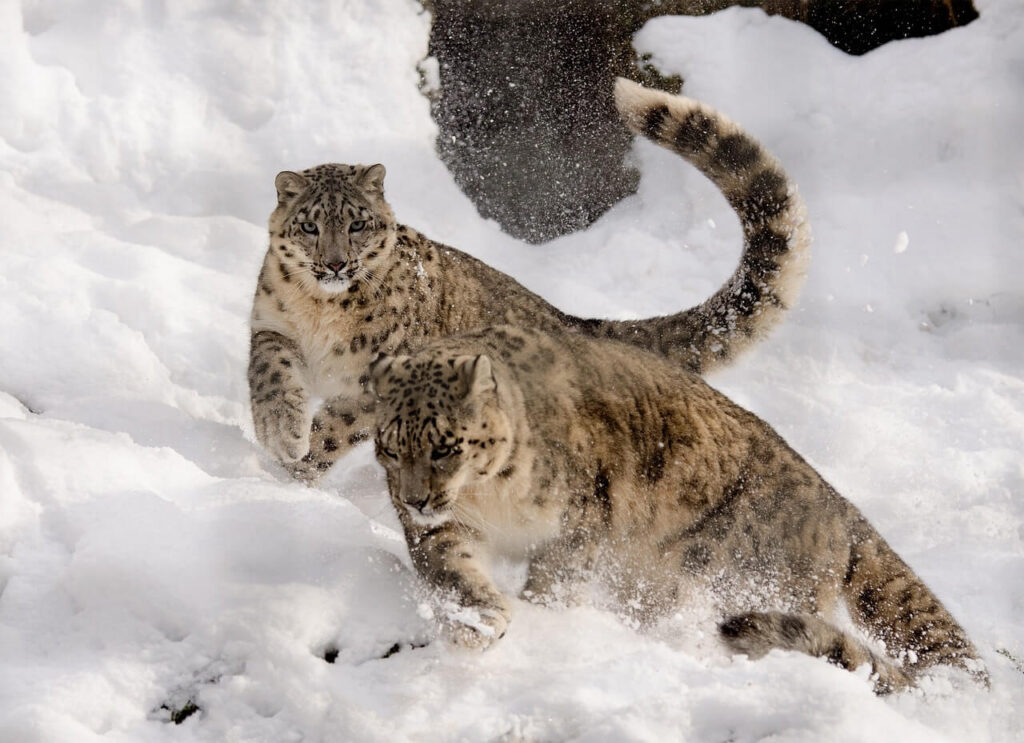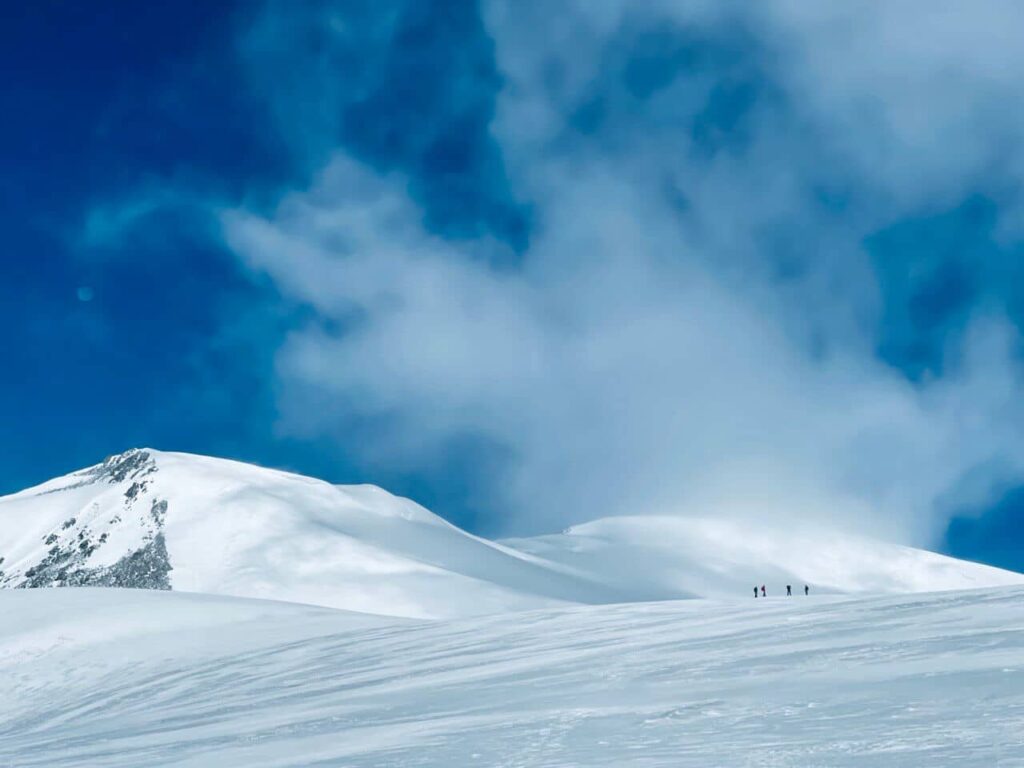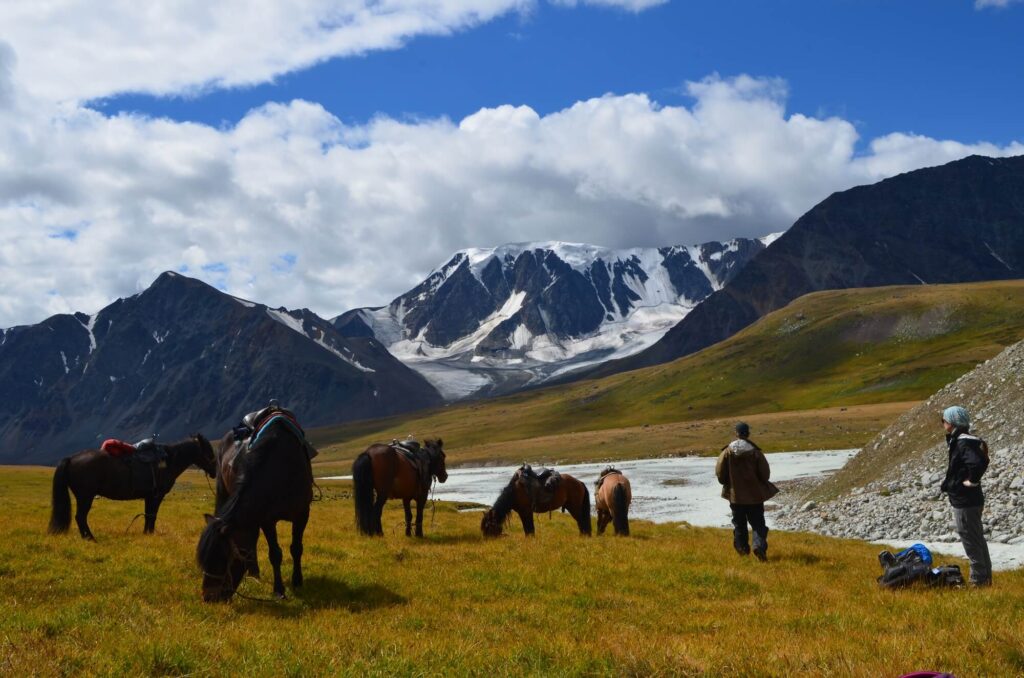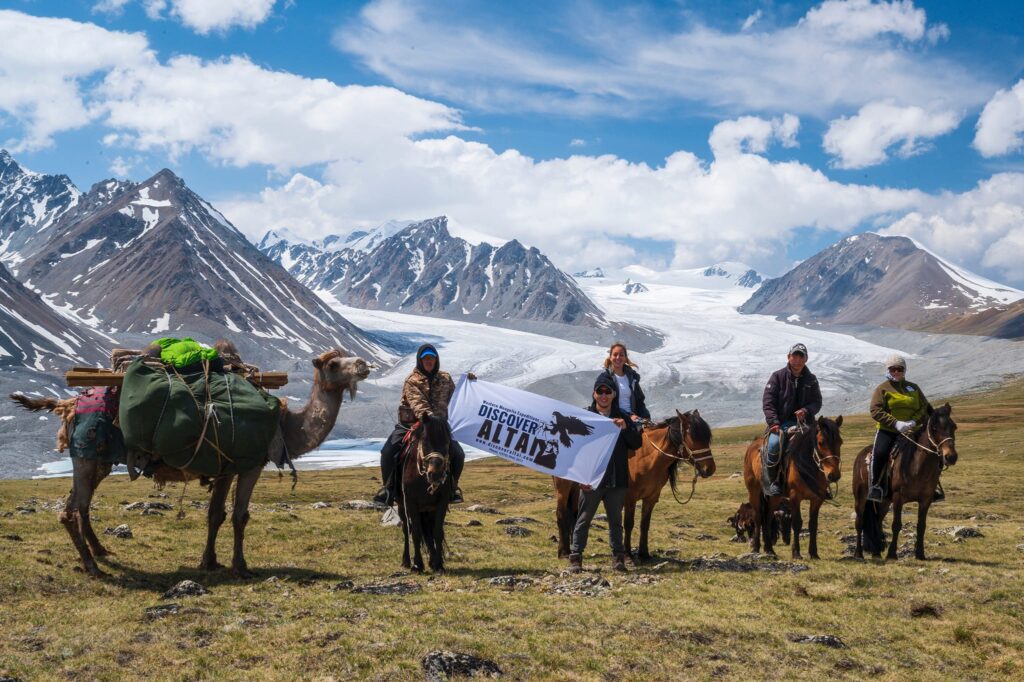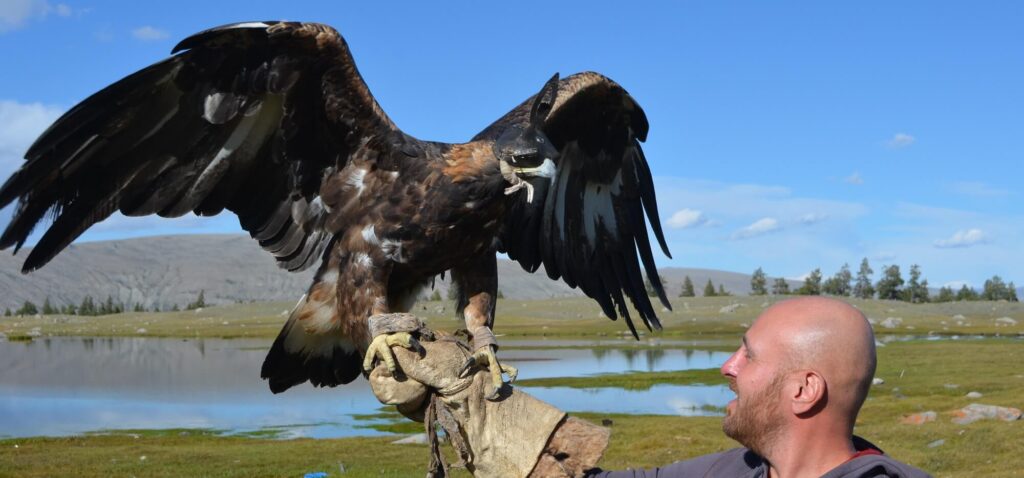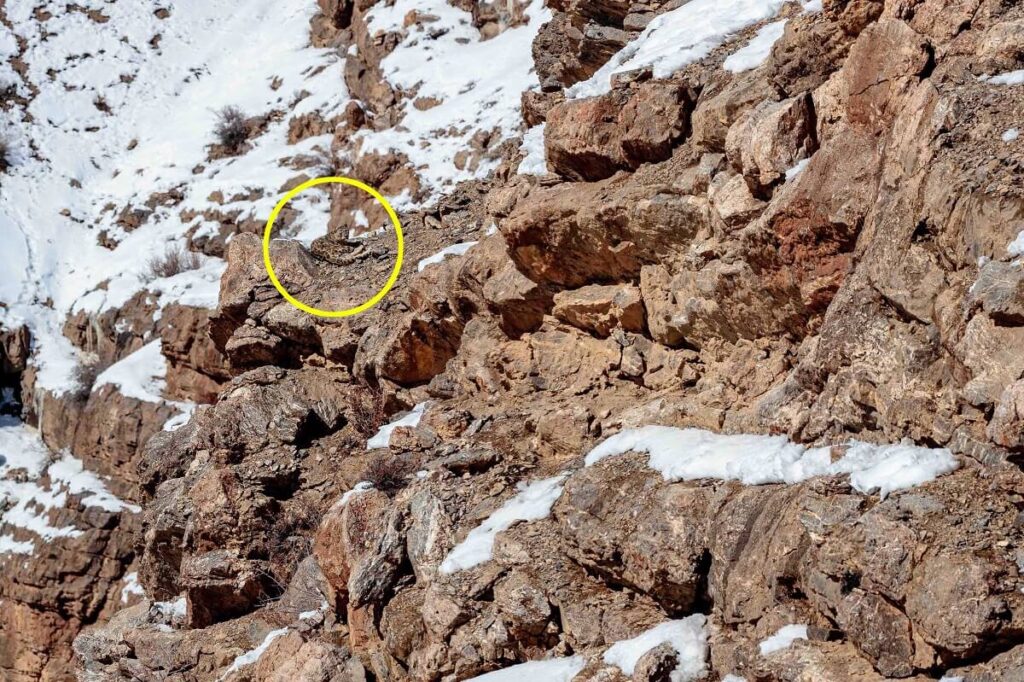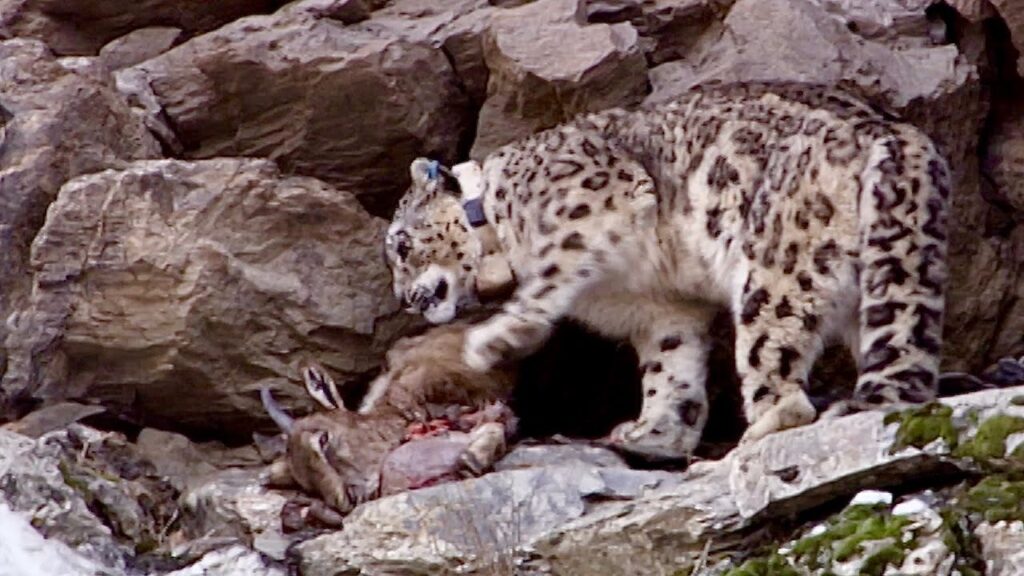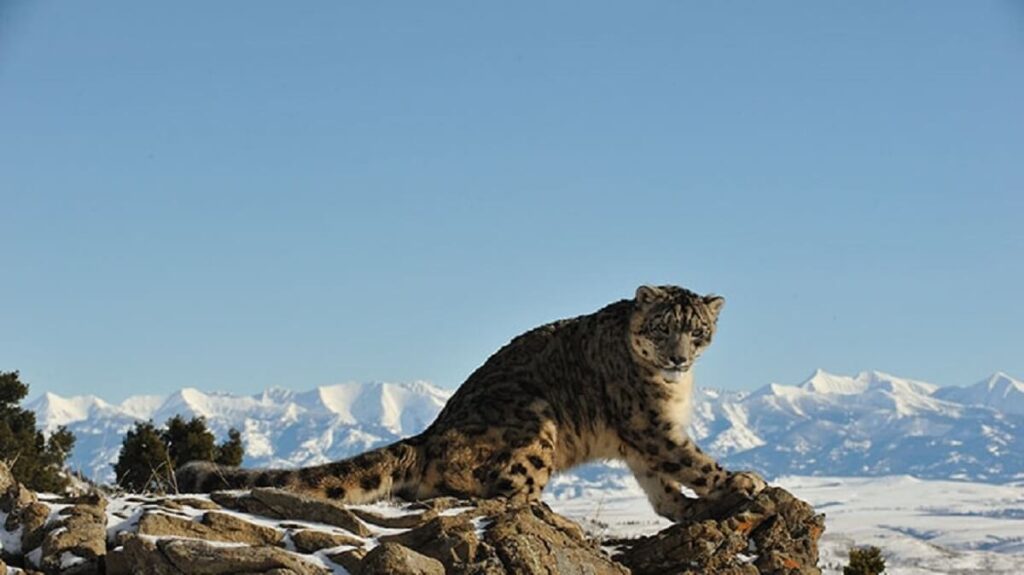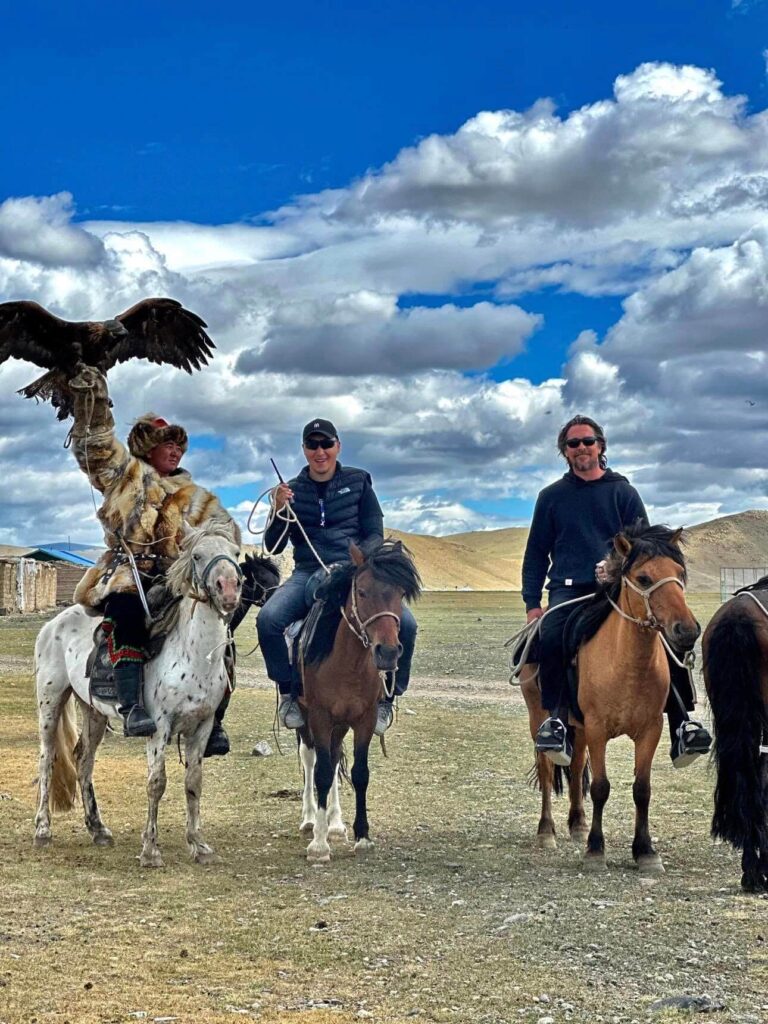The snow leopard (Panthera uncia) is one of the most striking and elusive big cats in the world, known for its unique appearance and ability to thrive in some of the most remote and rugged mountain regions of Central Asia.
Its remarkable adaptation to the cold, high-altitude environments is reflected in its distinctive physical characteristics, which not only allow it to survive but also to excel as an apex predator in these harsh ecosystems.
We offer you MONGOLIA SNOW LEOPARD PHOTOGRAPHY TOUR. Mongolia is the world’s 18th biggest country by territory with only three million people living here. Over 1.5 million square kilometers of land is inhabited by the last nomads and unique wild animals like the red fox, grey wolf, and snow leopards. It will be wonderful 🤩🤩
Fur and Coloration
One of the most notable aspects of the snow leopard’s appearance is its thick, luxurious fur. The snow leopard has a soft, dense undercoat that insulates it against the freezing temperatures of its natural habitat, which includes the Himalayas, the Tibetan Plateau, and the Altai Mountains.
This undercoat is covered by a longer, coarser layer of fur that serves to protect the animal from the elements.
The color of its fur is primarily a pale smoky-grey, which is beautifully mottled with black or dark-grey rosettes and spots. These spots, which are irregular in shape and size, help the snow leopard blend into its rocky, snowy surroundings.
The underbelly, chest, and inner legs are typically lighter in color, almost white. This overall coloration provides the perfect camouflage against the snow-dappled rocks and alpine meadows where the snow leopard makes its home. The fur pattern and color help it remain inconspicuous to both its prey and potential threats.
Head and Facial Features
The snow leopard’s face is also distinct, with a short, broad head and a rounded, compact nose. Its skull is robust, which supports powerful jaw muscles, aiding in the killing of prey.
Its eyes are large and set in a forward position, giving the snow leopard excellent binocular vision, which is crucial for spotting prey from long distances in open or semi-open environments.
One of the most captivating features of the snow leopard is its striking eyes, which range from pale green to grey, unlike many other big cats, which tend to have yellow or amber eyes.
This eye color, combined with its thick fur and elegant features, gives the snow leopard a serene and ghostly appearance, contributing to its reputation as the “Ghost of the Mountains.”
The snow leopard’s ears are small and rounded, helping it to minimize heat loss in the cold environments it inhabits.
The black markings on the ears, which resemble an “M” shape, serve as a form of communication between individuals, especially when one snow leopard follows another along mountain trails.
Body Structure and Adaptations
Physically, the snow leopard is built for agility and power. It is smaller compared to other big cats, with adults typically weighing between 27 to 55 kg (60 to 121 lbs), though larger individuals have been reported. Males tend to be slightly larger than females.
Its body length, excluding the tail, ranges from 90 to 130 cm (35 to 51 inches), while its tail adds an additional 80 to 100 cm (31 to 39 inches) to its overall length.
The snow leopard’s body is muscular yet lean, designed for speed and strength, allowing it to traverse the rugged, vertical terrains it calls home. Its legs are relatively short but incredibly powerful, enabling it to leap great distances—up to 15 meters (49 feet) in a single bound. This ability is essential when chasing prey or navigating steep cliffs and rocky outcrops.
The snow leopard’s paws are large and wide, functioning like natural snowshoes. These wide paws help distribute the animal’s weight across soft snow, preventing it from sinking too deeply.
The paws are also equipped with fur on the soles, providing extra insulation against the cold and additional grip on slippery surfaces.
Tail and Balance
Perhaps one of the snow leopard’s most distinctive features is its long, thick tail. Measuring almost as long as its body, the snow leopard’s tail is not only a tool for balance but also serves as a thermal blanket.
When resting or sleeping in freezing temperatures, the snow leopard will often wrap its tail around its body, using it to shield itself from the cold wind.
The tail’s muscularity and length allow the snow leopard to maintain balance while moving across precarious, rocky terrain or leaping between crags. This is essential for survival in its mountainous habitat, where falls could be fatal.
Stealth and Elegance
All of these features combine to make the snow leopard a model of stealth and elegance. Its appearance is not only beautiful but also perfectly adapted to its challenging environment.
From its thick fur to its agile body, each element of the snow leopard’s appearance plays a critical role in its ability to survive and thrive in one of the most inhospitable regions on Earth.
In conclusion, the snow leopard’s appearance is an exquisite blend of beauty and practicality, evolved to master the high-altitude terrains it inhabits. Its unique physical traits—dense fur, powerful limbs, long tail, and striking eyes—create an image of both grace and strength, cementing its status as one of nature’s most fascinating creatures.






